Does Vegan Protein Powder Make You Fart?
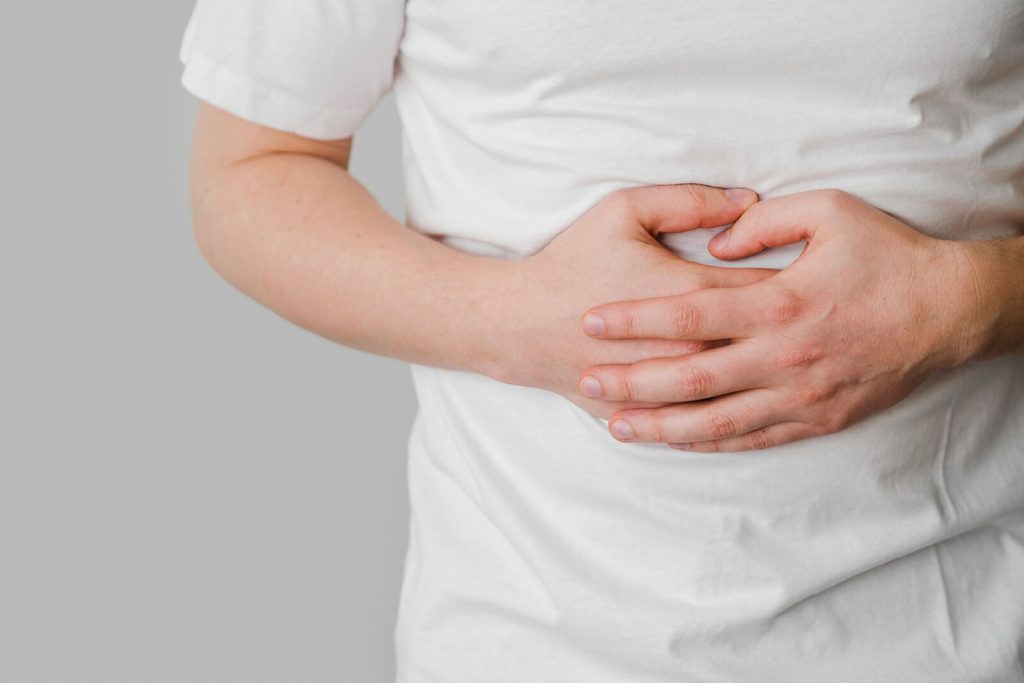
It’s no secret that vegan protein powder can pack a nutritional punch and give your workout routine an extra boost. After all, what’s not to love about kickstarting your day with some energizing plant-based goodness? But have you ever found yourself wondering if vegan protein powder could be giving you an unexpected side effect: making you fart? Have you ever wondered why certain foods give you more gas than others? You may have even heard that vegan protein powders make you fart more than regular protein powder. Is this a myth that everyone tells each other, or is there actually something to it? So does vegan protein powder make you fart or is it just a myth?
Does Vegan Protein Powder Make You Fart?
There have been many debates on whether vegan protein powder makes you gassy and it can definitely be a bit confusing. More often than not, it really depends on the type of vegan protein powder that’s being consumed – some may affect your digestion and lead to more gas, while others may pass through more smoothly without any issues. Besides looking into the type of vegan protein powder, other things like diet and general lifestyle can also play a role in influencing how much gas you release after consuming them.
However, keep in mind that plant-based proteins like those found in vegan protein powder and protein shakes can cause more bloating and gas compared to animal-based proteins—so it’s possible your farting issues could be from taking plant-based protein powder and protein shakes. That said, there are still plenty of options out there for all sorts of dietary needs, including in the vegan world, so if you feel like you’re gassy after using certain brands, consider trying new ones to see what helps. The last thing anyone wants is to feel uncomfortable from taking a dietary supplement usually meant to help them!
Now that we have busted the myth, let’s investigate why does protein powders induce gas and its implications on your health. But first, here are some vegan protein powders we recommend for better digestion.
Why Does Protein Make You Fart?
Eating too much protein foods, especially animal protein foods, can result in excessive gas production. Even protein bars can cause protein farts too. This is because high-protein food is harder to digest than carbohydrates and fats since protein is digested at a slow rate due to the amount of time it takes for us to break it down and turn it into amino acids, which are small enough for absorption. The slower your digestion process, the more trapped air will accumulate in the stomach and large intestine, resulting in increased gas production.
There are also certain proteins that might be especially difficult to digest like beans and dairy products, both high in protein and known to cause gas. Hence, high amounts of protein in the diet can cause more gas to be produced in the gut due to its hard-to-digest peptide bonds, which require extra energy for the body to break down. On top of that, protein digestion even releases more sulfur-containing amino acids than any other food group, which can lead to an unpleasant odor when expelled as flatulence. Finally, when the gas is released through the process of flatulence, it causes the uncomfortable and embarrassing experience of “farting”.
After knowing the process of how proteins cause flatulence, let’s turn to which factors cause them.
What Causes Protein Farts?
Have you ever wondered why your gut is so gassy after you have a protein-packed snack? It turns out that certain proteins, cheeses, and lactose, can cause a build-up of gas in the bowel and intestine which leads to an unfortunate side effect – protein farts. Fortunately, there are some simple steps to take to keep these cheeky gassers away. This is because lactose needs to be broken down by bacteria in the intestines to be properly digested, which produces a greater amount of gas as a result. An increase in the consumption of lactose-containing products, such as cheese and dairy-based protein shakes, can lead to an increase in protein farts. So maybe it’s only natural that your post-workout shake isn’t sitting quite right with you after all!
Lowering your lactose intake by choosing lactose-free (or lower lactose) forms of protein – such as soy or pea protein – is a great way to go. You could also take lactase enzyme tablets with any lactose-containing meals can help reduce those protein farts too!
Protein gas is also a common side effect of a high-protein diet as well. Protein farts can be caused by the body having difficulty breaking down some specific proteins in protein powder supplements, such as egg whites or whey (found in whey protein isolate and protein shakes). Digestive enzymes in your body break the food down into small molecules that are easier for your digestive system to absorb, but not all types of food use the same enzymes and this can create more gas as a by-product. Red meat, dairy products, beans, soy, and anything high in fiber are all notorious culprits. Eating large amounts of any of these foods can irritate your digestive lining and cause extra gas build-up before they even enter your colon. So, just plan to stay away from them as much as possible if your bowel is sensitive. However, is protein gas a good or bad sign for your health?
Are Protein Farts Good or Bad?
Despite being a less-than-pleasant topic, it’s one that can have an important impact on your well-being. On the one hand, some people think that protein gas is harmless, even potentially beneficial for your health. On the other hand, others argue that it causes gas and bloating – something we surely could all do without! Although they may sometimes seem like a bad thing, protein farts are actually good because they’re a sign that your body is digesting the protein you consume. So, the next time you smell something after your whey protein shakes, don’t panic! It’s only your body doing its job properly and using the protein to fuel your muscles.
Just keep in mind that protein gas generally means that too much protein has been consumed in one sitting. So, perhaps the best way to avoid them is to spread out your intake more evenly throughout the day. Ultimately, it really depends on your goals and how much protein you’re consuming – everybody is different after all! However, we’re now faced with the question of whether ingesting foods with too much protein is harmful to your health.
Is Too Much Protein Harmful?
Eating too much protein can be associated with some serious stomach issues. Overeating protein-rich foods can cause stomach cramping, gas, and even diarrhea. It’s very important to understand the food you eat and how much of it your body needs.
The body uses proteins to build, regulate, and maintain the structure of all cells and tissues within it. That said, if an individual consumes too much protein over an extended period, it can be potentially harmful. Eating too much protein can lead to digestion issues, dehydration, and even kidney problems.
It could also result in existing medical conditions being exacerbated or new ones arising. On the other hand, eating with a diet from plant protein sources, especially when accompanied by adequate hydration, fiber-rich foods, B vitamins, and healthy fats can be beneficial to one’s health.
Ideally, the Acceptable Macronutrient Distribution Range (AMDR) for most people should be anywhere between 10-35% of their daily intake of calories come from high-quality proteins. Even if you are the type that loves to get those gains in the gym, it is still important to look out for your stomach and pay attention to the grams of protein you consume.
How Do I Avoid Protein Farts?
To prevent producing such an uncomfortable smell, here are some tips you can try. You could maintain a healthy balance between carbohydrates, fats, and proteins so that your body can digest your food properly. Eating smaller portions more frequently, taking digestive enzymes prior to meals, exercising regularly, and drinking plenty of water can also help support digestion and decrease the occurrence of protein farts.
If you’re newly experiencing protein gas yourself, fear not! Simply eat more fiber and drink lots of water to reduce proteins hard-to-digest effects by tackling those tough proteins. While moderating your protein intake may not eradicate the issue completely, it can help you to avoid excessive gaseous discharge.
With some simple modifications and mindful food consumption habits, you can reduce the chances of experiencing embarrassing protein gas in your day-to-day life. But perhaps you want to address this issue by eliminating the occurrence of protein gas? You’re in luck with the next section as we’ll tell you exactly that.
- Gradual Intake: Ease into using vegan protein powder by starting with smaller servings, gradually increasing intake for smoother digestion.
- Hydration Balance: Adequate water consumption aids digestion. Stay hydrated throughout the day to alleviate gas associated with plant-based protein intake.
- Digestive Enzyme Support: Enhance protein breakdown with natural digestive enzyme supplements containing protease, amylase, and lipase for reduced bloating and gas.
- Mindful Fiber Intake: Strike a fiber equilibrium by monitoring overall fiber consumption, considering both dietary and supplement sources, to manage gas production.
- Low-FODMAP Alternatives: Opt for vegan protein sources like pea or rice protein, which are lower in FODMAPs, minimizing fermentable compounds that contribute to gas.
- Soothing Herbal Allies: Chamomile, ginger, fennel, and peppermint are digestion-soothing herbs. Integrate them to ease discomfort and reduce excessive gas.
- Gut-Friendly Probiotics: Consume probiotic-rich foods such as live-culture yogurt, kimchi, sauerkraut, and kombucha for optimal gut health and gas reduction.
- Strategic Meal Timing: Prioritize early-day protein consumption to allow ample digestion time, mitigating nighttime discomfort from high-protein meals.
- Thorough Chewing Technique: Meticulously chew food to break it into smaller particles, facilitating digestion and thwarting potential gas formation.
- Smart Food Pairing: Mindful food combinations matter. Avoid coupling high-protein and high-starch foods to ease digestion and curb gas.
- Gas-Reducing Spice Integration: Harness the power of gas-reducing spices like cumin, turmeric, and coriander in your meals for improved digestion.
- Active Lifestyle Impact: Engage in routine physical activity to stimulate digestion and assist in moving gas through your system, promoting comfort.
- Professional Guidance: If discomfort persists, consult a registered dietitian or healthcare expert for personalized advice, tailored to your unique needs.
How To Get Rid of Protein Farts?
Increasing your intake of probiotic foods (such as yogurt or kombucha), avoiding gas-producing foods like onions and garlic, taking digestive enzymes containing papain, bromelain or DPP-IV, reducing your intake of certain high-protein foods (such as beans, lentils, nuts, and dairy), and limiting the number of large meals at one time can all help improve digestion of proteins and reduce odor-causing gas.
Additionally, drinking plenty of water helps to aid digestion which can also cut down on any uncomfortable bloating that can sometimes come with a larger protein load. So, make sure that you’re drinking enough water; dehydration can increase protein breakdown in the digestive tract and encourage more flatulence.
With these tips in mind, you should have no trouble being able to enjoy all the benefits that protein has to offer without any of the potential embarrassment associated with protein farts. But if you’re serious about eliminating protein gas, below are the steps to a simple eating lifestyle to stop protein gas for good!
How to Stop Protein Farts
Firstly, make sure that you’re eating the right types of proteins – try incorporating some plant-based protein powders into your diet instead of relying purely on animal products such as beef, lamb, and pork.
Secondly, fibrous veggies like broccoli and cauliflower can help slow down the digestion of proteins by providing bulk. Eating more fiber-rich food helps improve digestion and prevents bloating which reduces the amount of gas coming from your digestive system. If you don’t get enough fiber from your diet, consider taking a fiber supplement such as psyllium husk or guar gum.
Finally, solve the problem at the source by making changes to your digestive system – probiotics can help introduce healthy bacteria that will help break down food faster. Taking enzymes before meals may also help as they will aid breakdown and absorption as well.
With these simple changes, you’ll be able to say goodbye to toot embarrassing protein farts! As always, moderation is key when it comes to one’s nutritional intake. One way to do this is to spread out your protein intake.
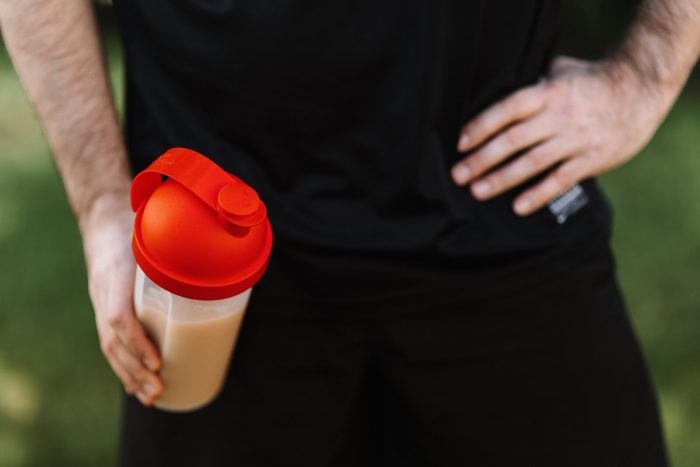
Spread Out Your Protein Intake
When it comes to consuming protein, many people make the mistake of chowing down too much at once. But spacing out your proteins throughout the day can make a big difference in how your body processes and absorbs them. As we had just learned, eating too much protein at once can be difficult for gut health; not all of it will be broken down and used by the body. Spreading out your protein intake throughout the day helps ensure that you’re getting adequate levels of each nutrient while also keeping gut health in check. You don’t need to skip meals or downright deprive yourself; just try eating smaller portions of proteins multiple times throughout the day to benefit from their nutrients without risking gut health. Also, remember not to rush into the process and give it the time necessary to be effective.
Give It Some Time
Giving your protein intake some time is a great way to help gut health. Think about how much protein you were consuming on a daily basis before, then analyze what changes may make a positive difference in the days ahead. Consider if there are any modifications that could make you feel better overall. Additionally, taking slow and steady steps to make sure your gut remains healthy and balanced is never a bad idea since it affects other areas of our bodies. Begin with small changes that gradually alter the amount of protein you take in per day and track the changes you’ve made for more clarity over time. Focusing on gut health also takes discipline so make sure to stick to whatever routine works best for your gut and overall health!
Ultimately though, consultation with a nutritionist or doctor is recommended if you have questions about how much protein you should be ingesting and how often.
Switch Your Protein Powder
Unfortunately, not all protein powders are created equal; some can actually do more harm than good by upsetting your gut. If you’re looking to switch up your protein powder routine and give your gut something healthy to work with, the trick is to go for one that has gut-friendly ingredients such as pea protein powder and natural sweeteners like stevia. Not only will these options help fuel your body and support digestive health, but they’ll also make for delicious smoothies! There are so many delicious options available now, and they all offer something different nutritionally. Whether you need more gut-friendly ingredients, something vegan-friendly, or a completely natural option, there’s something out there for everyone! Not only that, but it can be a tasty and nutritious way to get the protein and vitamins you need without relying too heavily on red meat. Whatever your needs, switching up your protein powder can be a great first step toward improving your health.
Look at the Ingredients
It is essential to pay attention to the ingredients in your protein powder or protein shake. Protein is a key nutrient for gut health, and you want to ensure you are supplemented with quality ingredients that promote gut health. Hence, it’s important to pay attention to the ingredients used in your vegan protein powders and protein shakes. Just like with any other supplement, there could be hidden toxins in the mix. Reading the list of ingredients and understanding what each one does can help you determine if your plant-based protein powder is safe for gut health. It’s also essential to watch out for potential fillers, additives, or artificial sweeteners, as these can mean reduced nutritional value and lead to an unhealthy gut environment.
Check Your Diet
You may be tempted to just buy vegan protein powder and make it the lone centerpiece of your diet, but let’s not forget about your gut health. Incorporating fiber-rich food into your diet is essential for promoting gut health. So, when you select a plant-based protein powder, make sure that it contains dietary fiber and probiotics so that you can provide the proper healthy nutrition lifestyle your gut needs while getting plenty of protein. Remember that also eating regular meals throughout the day is also important to keep up energy levels and feel good. Make sure to strike a balance between incorporating vegan protein powder and focusing on gut health so that you nourish your body well! Most importantly, when it comes to our diets, always remember to add vegetables!
Add Vegetables To Your Diet
Eating plenty of veggies is essential for gut health and provides us with essential vitamins and minerals that are essential to a thriving lifestyle. For example, dark leafy greens like kale and spinach are packed with antioxidants, and celery can help reduce cholesterol levels. But eating vegetables isn’t necessarily limited to salads or steamed sides! Try getting creative with your veggies by making healthy tacos, frittatas, and even pizza with a cauliflower-based crust! This will not only make them more enjoyable meals but will also add more variety to your diet. So don’t forget to add those veggies – they’re beneficial for gut health and keep you feeling great!
Cut Out Junk Food
Tempting treats and processed meals are packed with sugar, fat, and sodium which can put us at a higher risk for all sorts of problems like obesity, heart disease, and diabetes, making all your efforts of ensuring an effective protein intake all or not. By cutting out junk food, we can greatly reduce our chances of developing these potentially dangerous conditions. It’s easier said than done, of course. Sometimes it helps to start slow by swapping out your favorite snacks for healthier alternatives or to plan exercise into your day so you start feeling energized instead of sluggish after meals. Making small changes in your diet today can go a long way toward living a healthier tomorrow!
While proteins play an important role in supporting the body and helping it maintain its structure, there is a condition that affects us outside of what proteins provide. One example of this is a mineral imbalance, which can lead to problems with nerve and muscle function, fatigue, and other health complications. Minerals like zinc, iron, magnesium, and calcium play vital roles in helping our bodies to run smoothly. Unfortunately, we sometimes don’t get enough minerals from our diets alone and can develop conditions related to mineral imbalances. It’s best to supplement your diet with foods that are rich in vitamins and minerals to make sure you’re getting your daily nutritional requirements. To ensure proper nutrition for optimal health, try adding these essential minerals into your meals: zinc-rich nuts or eggs; iron-rich beef or spinach; magnesium-rich nuts or tofu; and calcium-rich yogurt or cheese.
Over-the-Counter Drugs or Medications
Over-the-counter medications can provide temporary relief. For gut health, many people will immediately opt for taking over-the-counter medications. While this might provide some relief from gut and health issues, there are other safer and more natural options available, such as adding plant-based vitamins or supplements to your diet. It’s an excellent source of gut-friendly nutrients and may help you avoid the need for OTC medications.
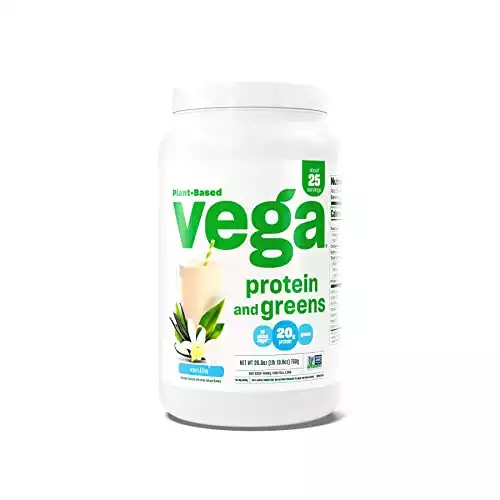
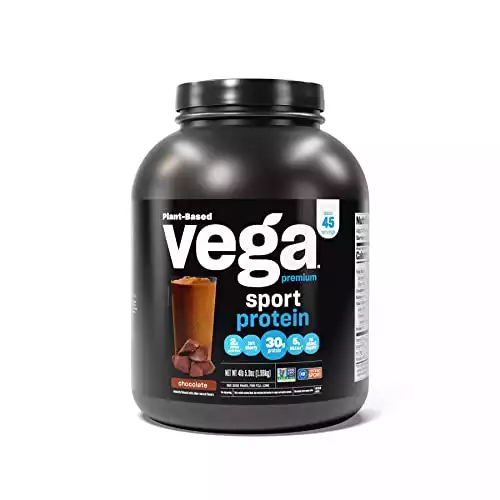
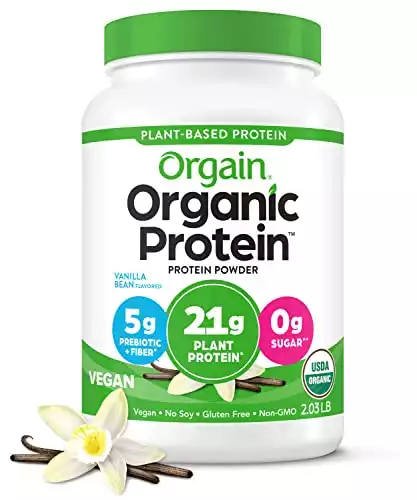
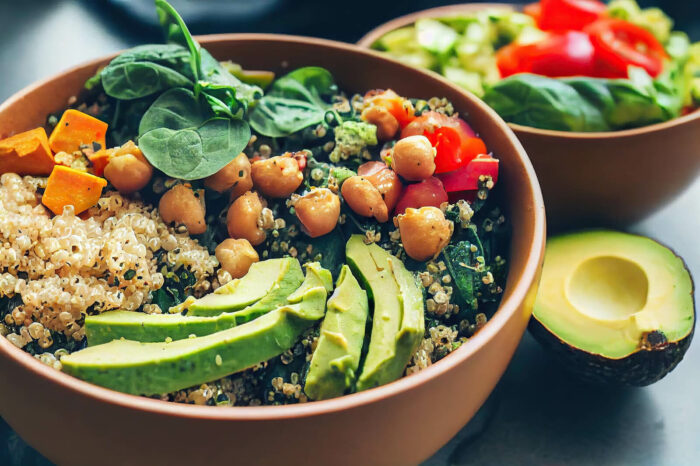

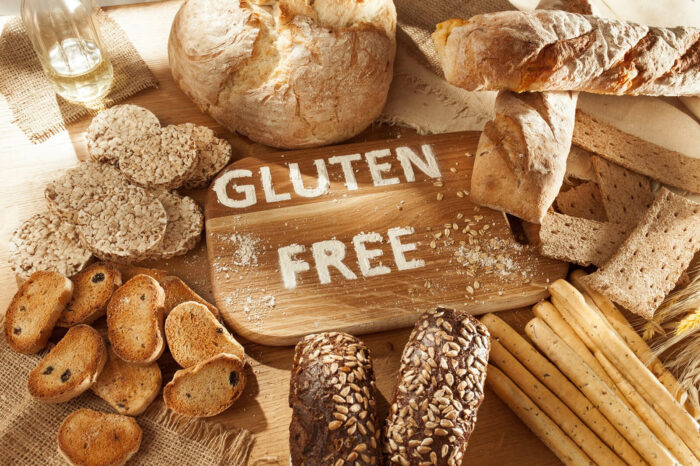
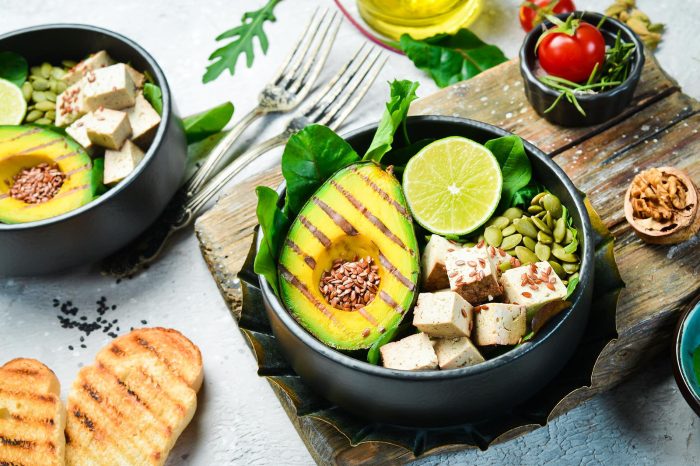


Thanks for everything you do for the animals! 🥰